|
It was never on my horizon. I didn't know. I hadn't heard. I'd never seen someone go through a time like this, where it seemed like all their friendships were taking turns. Essentially, in life we give things the meaning they have for us. Blue, to you, might be a sad color. To me it might be a favorite, like water in the tropics.
So with multiple friends having conflict with me over the past year, is it about me? Am I the problem? That's a perspective. And I always want to take responsibility for my impact, intended or unintended. How am I creating the problem? I can ask. There is risk involved. Risk to what? My ego. And that's OK with me. It might be that one friend has something to share about how I impacted her, that is not pleasant. It'll hurt, yet it's OK. Life is sad and beautiful. I am human, I am lovable, I am learning. Other times I might learn that this person isn't someone I like anymore. We can talk. He can learn how to be more of the person he wants to be. And then? We can let go if we want to. These are wild times. Pandemic. Racial revolution. Insanity... What stands out as most important to me are five things: 1) People matter. Friends matter. When someone is upset with me, I want to be aware of it, listen and apologize and forgive. I also want to be forgiven. 2) I'm always learning. I wouldn't have it any other way! Divine order is happening, and conflict is part of being human. I'm not wrong or bad, and they're not either. 3) I am not weaker from this. More muscle to move through conflict is a good thing. 4) It is a dream come true to have begun studying communication and EQ as a child. 5) No matter what I've said or done that may have been hurtful, I am lovable. I love me. I like me. That's freedom!
0 Comments
Are pet peeves meant to whip us into spiritual shape? When something triggers us emotionally, isn't that a sign that we aren't at peace, that we have given this "thing" power over us, that we have something to forgive, to let go, to accept? For me these days, being ignored is that thing. It really bothers me, and it's happened a few times in the last two years with people who I thought were "above" or beyond ignoring. People who I expected were able to speak up, even if it meant saying something awkward. And then my own greatest masterpiece, my daughter, brought the topic to the table -- ignoring people in a way that seemed to ask me to step-up. Teach her. Show her. Dive into it. At this point ignoring is knocking on my door. Let's start with spiritual responsibility -- or personal responsibility. When I am being ignored enough to bother me, I need to look in the mirror. Am I ignoring people? Is this my own unhealthy habit staring back at me? All I need to do here is pay attention and step up. Live the Golden Rule, be the change I wish to see in the world. When someone calls to me, respond. Beggar on a city sidewalk or my husband. Respond. I can do this. It was two years ago when the first ignoring instance happened -- a significant one, not a little small silly thing where I called to a stranger, asked them a question and they ignored me. I can let that wash off my shoulders. This was a bold, intelligent, empowered woman friend who I had written to from Sweden. Along with a long, beautiful letter, I had sent her children drawings from my daughter. When I didn't hear back I reached out again, months later, and... nothing. She ignored me. Fast forward one year. Her ignoring me didn't weigh me down. I called her one day out of the blue to see if she was willing to talk about marriage -- out of the box, because she is a free thinker not constrained by the bulk of our culture's in-the-box ways. She answered the phone and said yes. She asked me to text her to set up a time and... Flop. Ignored me again. So my mind goes through its little dance... Am I "not cool enough" for her? That sort of thing. But I happen to really like me, and that kind of thought doesn't weigh me down long. A question remains. I'm left wondering and a bit annoyed that someone I saw as a conscious communicator could actively ignore me. How does it feel on her end? Onward. At a recent family reunion, a family member ignored me. Upset with something I had done that somehow really upset her, she walked past me upon arrival without saying much, and left the reunion without saying bye either. She ignored me the whole time, and for decades I've been a person who can "see the pain" in this kind of behavior, who can stay mostly in a place of forgiveness, this time I felt angry. Underneath it there is sadness because the way we communicate is so, so sad to me -- but there is also anger on top, and at this point in my life I am letting all my feelings be heard. One big fat piece of ignoring. Ouch. This one hurts a bit. Will we die disconnected? Yes anger, you get to have a voice too and I hear you. It has been decades. It is time. In July one of my dearest long time friends visited the beach near me and I saw photos on Instagram. His daughter and I are close pals, having had many play dates when she was a little girl. I adore him -- he's wise, honest and bold and he treasures his family. So I was a little surprised they didn't let me know they were so close, at the beach near our house. Just so I could go sip coffee with them, or take a barefoot walk in the sand. Whatever. But see them! They are very dear friends. So I texted him asking why he didn't let me know in advance. He said they needed time alone. I get it. Life is outrageously intense these days for humans. I get it. It isn't personal. And then I realized I had a request. Could I take this to a new level in becoming a better communicator? I asked myself. Or is it no big deal, just to be let go? The answer within me was to make a request. So I did. I left him a voice message asking if he's willing to learn from the situation with me, and hear my request. I asked: Would he, next time he is near me, just let me know in advance? If they wanted alone time, I could accept that. Truly, giving space is easy for me and 99% of the time I don't take things personally. I need two days of alone time every month. But knowing they would be near me, I realized, would feel good to me. He could say "no" to my request -- it wasn't a demand. I sent the message. Blank. Ignored again. Why? Between two of these people, I get the sense I'm "too much" for them. Leave it alone, Rios, it's no big thing. Well guess what? If it is to me, it is to me. And I matter. If you care, you can extend just a few words to show it. That's it! When I wrote long emails years ago, or when I write a long letter these days, sometimes people feel silly writing a few words back. Please don't feel silly writing just a few words back -- writing nothing is way worse than writing a few words back. Being ignored can leave someone in an empty space, wondering. Is that the impact you intend to have? "Thanks for the note! I'm busy at work... sending you a hug!" "I hear you and I need space right now." "I care for you and am just not available to talk. Let's chat next week." Whatever it is, show love. Please don't ignore people. Babies learn the world is an unsafe place when they are ignored for too long. It hurts adults, too. If someone is being mean spirited and really off-base, calling you names and insulting you, take space! Yes, don't lean into violence and expose yourself to abuse. But if someone simply asks for help, or doesn't communicate the way you do -- ignoring is not the loving way. As a child, I lived in a house where Conflict Avoidance was the primary communication style. I didn't learn how to argue. Arguing didn't happen in my house until one traumatic day, my parents were arguing and my mother left. From that point on, I saw her every other weekend. It sent me on a lifelong journey of studying communication. And to this day, I live in study of this rigorous and rewarding field. Today I learned that even when we extend ourselves with courageous and kind hearted intentions, our actions can hurt people we deeply, dearly love. Life is messy. If you want to live with a big, bold, loving heart, you will make messes. You can't control this. Your heart will push itself outward, sometimes disregarding the laws of the world, and at some point you will really upset somebody you never, ever, in a billion years thought you could deeply upset. It's the last thing you would expect. Are you kidding me? says the rational mind. Enter heart, again. If you're fortunate enough to have people who will sit with you and talk things through, seize the opportunity. It's richer than gold. Go over there, to her (or his) eyes. That wasn't what you meant to have happen. Still, it happened. You are having a human experience and it is messy. Apologizing for your impact does not mean you are kneeling before an unloving God who says you've sinned. Nope, nah, nizzle. Get over trying to protect your ego. You are valid, valuable, loved. Your feelings matter. And theirs do too! Apologizing for your impact means you're humble enough to honor their feelings, and that you acknowledge an impact happened that you did not intend. I am so glad to have been studying communication all my life, prompted by the gift of my parents' divorce. Every bone in my body wished intensely that my mom and dad -- who I adore indescribably -- could communicate more effectively. They were doing their best, and on that summer day, it was painful and messy. They didn't intend for it to be, and it was. From here on out, if you have a child or intend to live bigger in Love tomorrow than you did today, simply accept that conflict is human and it happens. You can choose to be afraid of it or you can choose to face it when it comes. You can choose to teach your child the myth that conflict is unnecessary or unhealthy, or you can choose to help them prepare for what is inevitable. Tonight my heart got to witness the pain I unintentionally caused two people I respect and love. It hurt then, and it still hurts. My skin, eyes and heart feel raw. Rawness takes time to melt away. And that's OK. Right now I am more humble and strong than I was before this conflict showed itself. I have no regrets and enormous gratitude for friends who are brave enough, and who respect themselves and me enough, to stand tall through conflict -- however awkward and uncomfortable it may be. Your child can find him/herself shocked by conflict at age 28, in a marriage with emotional abuse and unable to engage healthfully. Or your child can start learning now that conflict is normal, and we can become skillful communicators, empathetic beings, who aren't afraid to face the fire. Lead the way. Dear Dad, It was evening. We sat in your living room and as you do every day, you watched the evening news. Summer time in California meant every other story was about wildfires. Then came the reports of shootings. When the guns, blood, police sirens and faces of black American citizens flashed on the screen, I asked you to turn off the sound because my daughter, your 7th grandchild, does not know what a gun is and I don’t want that horror present in her awareness yet. You turned off the sound, and then it happened again. Another story about another shooting. This time you were a bit annoyed when I asked you to turn off the volume. You said, “Someday she’s going to have to learn about reality.” And I get that you see that as reality. I’ve been through this before with another family member. Deep sigh from my Mama Bear heart. This is a letter to you and to millions and millions of people in our culture who would feel the same way you did in that moment. Annoyed, like I am privileged and should be teaching my child about shootings and other violence already. Simply put, and with love and respect for you, I have every right to differ and I do. Just as somebody might choose to use a gun to protect their child, I choose to use my instinct and powerful voice — and my ability to select what she is exposed to — to protect mine. Back up with me for a moment. We all get to choose what we read, what we watch on TV or if we watch any at all, where our information and education comes from… Yes? That’s worth asking. It’s worth considering. Otherwise, we’re just going with the default. Is life meant to be lived by default? The news most people watch comes from big business corporations. Let’s not get elaborate here, this is simple. I don’t want news that is chosen and delivered by a big corporation and I don’t want my daughter receiving news from a big corporation either. Our news comes from smaller entities that we find trustworthy. It’s a simple as that. We want to expose ourselves to trustworthy information that affirms the life-honoring values within us and teaches us how to create a kinder, more loving world. You choose your news, I choose mine. It’s important to recognize that what you call reality isn’t the reality I live in. Yes, I sound privileged to a lot of people. Yet we do not all live in — we do not all experience — one reality. We all get to make 1,000s of choices daily that culminate in different “realities.” But absolutely, and with great sadness I say, we do not recognize this freedom inherent within us. We see ourselves as imprisoned, each of us in our own way. Life is sad and beautiful, as a dear wise friend once said. I choose to expose my child to the violence in the world in those moments, one by one, when it is time for her. When we are ready. That’s not up to anyone else to decide. How can we dampen the ever-sprouting, sheer joy of a child? Children are here to play, feel safe and loved. My child is not here to fix the problems in the world right now. She is here to grow and blossom as a healthy citizen who will, one fine bittersweet day at a time, get to know the horrors of the human experience in more detail. For now -- and may it forever be my foundation -- I teach Love. I teach her that we all have different skin colors because we come from different parts of this life-giving, colorful planet. I teach her that when she feels pain, and when a friend feels pain, she can show love. I teach her kindness. I teach her how to communicate with her words, not with violence. These are tools she’ll need to lead to a world with less shootings to report on the news. You are a beautiful father and I wouldn’t trade a single thing for the fortune of having you as mine. I’m glad we can share how we feel and see life, and keep showing up to love each other through it all. Your youngest daughter, Jessica Sometimes life feels hard. And sure enough, sometimes circumstances are muddy, mucky and real rough. Especially with our closest relationships, things can be intensely challenging. Sometimes though, we make our own lives more difficult — usually without realizing we’re doing it. Each of us has much more power to influence our lives than we accept. The good news is that this is changing. Every time one of us steps up to sharpen our communication skills, we bring more skillfulness and humility to our relationships. And every time that happens, the world becomes a place that is more loving, safe and kind. Whenever I discover a simple tool that helps bring about this kind of world, I share it. Reflective Listening is a widely known skill in the world of interpersonal communication, coaching and couples therapy. It is exceptionally simple and I’ve detailed it below so you can practice. All humans would benefit from communication classes starting at a young age, with this exercise being practiced starting around age 10. If you’re in a committed partnership with someone who’s open to learning new things and wants to see the relationship become more fulfilling over time — someone who’s willing to do their part and not just expect things to improve on their own — you are fortunate. Practice with them. I am extremely thankful my husband is willing to use these tools with me. Reflective Listening has been transformative for our our marriage. Otherwise, ask a good friend or family member to practice with you. It doesn’t have to be deep or intense -- you can talk about ice cream or travel if you want. For a short taste of what it’s like, you can take 10 minutes, five each, trading places halfway through. For a fuller experience that might be more rewarding, set aside a whole hour and each take 30 minutes. Or, you can have your turn today as Sharer, or Listener, and switch places tomorrow. Benefits of Reflective Listening often include:
Ready for some of that sweetness? Reflective Listening: The Basics
Try it, let me know how it goes for you, send me an email if you want to share what worked and what didn't. Be gentle with yourself. Even a simple exercise can be challenging, especially when it has the potential to bring about so many positive changes. And if you find yourself all jazzed up about the power of Reflective Listening, share this link with a friend who’s struggling in relationship. Or if you have the spirit of Mr. Rogers’ Neighborhood and Sesame Street running through your veins like I do, and being a good friend is enormously important to you in life, call a friend on the phone today and tell them you want to gift them 20 minutes of your time, as Listener in this exercise. Lead them through it. It feels really, really good to have someone truly listen. Of the hundreds of people I’ve met and had conversations with, there are probably 10 who I consider to be masterful listeners. To those people, thank you. I’m not there — yet. I am definitely on my way. To all of us who are heading that direction, kudos, it is good to be in your company! Anyone who’s been in a committed relationship knows it’s not easy. Down the line, divorce and affairs are common. Couples begin with starry-eyed mutual adoration and eventually find themselves facing some of their toughest life’s work. Those who are a good match, with shared values and vision, who are willing to do the work presented by the relationship, can end up in an extremely satisfying place with an expanded sense of what’s possible in life. Maybe you know a couple who has made it this far. There’s no right or wrong — in my book — about whether you have or haven’t made it through huge bumps and reached the other side. It doesn't make you more worthy of love, just because you have done the work partnership has presented to you, and come to a place of discovering you are both “new” people with grown spiritual and emotional muscle. Whether we do this or that, whether we show the face of fear or love more often, we are all equally worthy of love. Still, it is very impressive and worthy of applause when two people do reach the "other side" in relationship. If you are someone who’s done the work of long term intimate partnership, I commend you. I applaud you. Please share your insights with others, however it feels natural for you. People all over the world are longing for more satisfying relationships, and sadly, many are not willing to ask for help. One of the big dying myths of our time is the myth that we don’t need each other. Why stand at the wedding altar and ask that all all our guests be witnesses and help us out when things get tough, if we aren’t willing to ask them for help when we need it? Friends, cousins, peers, coaches, many people in our lives would be happy to offer wisdom or a listening ear when we face relationship challenges. I am outrageously fortunate to have worked with a masterful relationship coach for 13 years. There are countless mediocre coaches out there, yet there are great ones too and there is one who’s a match for every one of us. And in asking for help, from whoever you ask, there is deep sweetness awaiting your soul. That place within you that values yourself enough to feel worthy of support, is a very sweet place. If you’ve got one really good friend, or a sister or father or neighbor who genuinely cares for you, ask for help, alright? There is no need to struggle in relationship. Let us not wait for hurricanes, wildfires and war to teach us that Love is the way. Giving it, receiving it, any way you look at it... Love is the light. In March 2013 our daughter Helena Beam was born in our Chico, California bedroom. We were very pleased with how our homebirth midwife, Dena Moes RN, showed up both during my pregnancy and our 7-hour labor. She also responded exquisitely when, two hours after our daughter was born, Dena noticed she wasn’t breathing right and called 911 without hesitation. Since then, I’ve become aware of some intense and unfortunate challenges facing Dena and other homebirth midwives. I interviewed her to learn about what’s transpired and what it may mean for homebirths – and holistic parenting – into the future. -- Jessica Rios Jessica Rios: In your profession, have you always been a "homebirth midwife?" How did you get into midwifery? 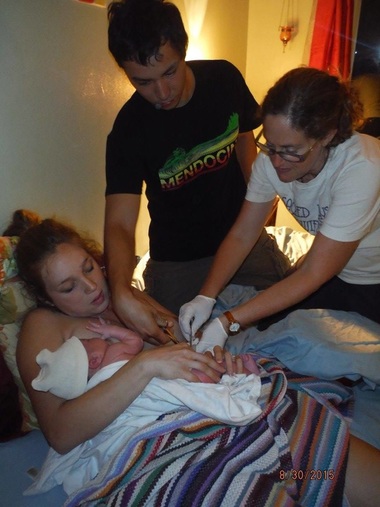 Dena supporting a birth Dena supporting a birth Dena Moes: No, I haven’t always been. I didn’t even know what a midwife was until I was 23. I have a degree in Literature from Yale, and I was living in New York City when a friend gave me the book Spiritual Midwifery by Ina May Gaskin. I read it and thought, ‘Oh my God, I am supposed to be a midwife.’ So I left the city for a week to go to a yoga ashram in upstate New York. I had been writing a lot about the midwife possibility, and on my last day at the ashram it happened to be Mother’s Day. Some moms came up from the city to do a special Mother’s Day sweat lodge, and I helped carry rocks. Some women were walking toward me huffing and puffing as they carried rocks. At one point I said to one of them, “You’re almost there!” and she turned to me and said, “Wow, you sounded just like my midwife when you said that!” It turns out she was the President of the International Cesarean Awareness Network. She turned me on to Certified Nurse Midwives and got me a gig volunteering at a big public hospital. Later I returned to North Central Bronx Hospital as a student midwife, and got to work with birthing families who were immigrants from all over the world. There are two routes to becoming a midwife. One is as a nurse midwife, and one is as a non-nurse midwife, known as a licensed or lay midwife. A Nurse Midwife is a Registered Nurse (RN) and also holds a Masters degree in Midwifery. I really enjoyed training in a hospital because I got to see a lot of situations in a very short period of time. I worked both as a Labor and Delivery Nurse and as a hospital midwife, and before that, as a student, I lived in an Amish farm house for a summer and attended 25 Amish homebirths while interning with a midwife who took care of Amish families. When my husband and I moved to Chico, the community needed another homebirth midwife. It felt like just the right time to put down roots and open the practice I had dreamed of. So I did. That was 2005. JR: How has it benefited your clients to be a RN too? DM: For my clients it’s been really valuable to have both the education and the work experience I brought to homebirth. A lot of them have been comforted not just by the fact that I’m a RN but that my degree is from Yale, an Ivy League college. By the time I started my homebirth practice, I had worked in several large Medi-Cal clinics providing gynecologic care and family planning. I had worked as a Labor and Delivery Nurse, some nights getting to assist with as many as four births in one shift. When you work in a hospital, you take care of everyone who comes through the door. Having seen complications in the hospital, I genuinely knew when things were progressing normally and when they weren’t. I feel this is an asset – the education and training of certified nurse midwives – to have a wider breadth of experience. There’s a certain clinical competency there. 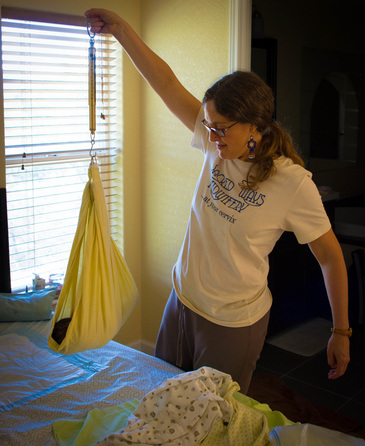 Dena weighing a newborn baby Dena weighing a newborn baby JR: What started happening in 2010 when your license was being threatened for revoking? DM: I’ll share some background first. When I opened my practice in 2005, I approached several OB-GYN doctors in my community who I’d heard were the most open minded or progressive, and asked if they would provide support to my homebirth practice in the form of consultations and collaborations, which is always the ideal... that midwives work in collaboration with other health care providers. That way, if there is a transport [from home to hospital], it’s smooth. I received a very negative response. No one agreed to work with me and I was told by the medical community that homebirth was not welcome here. I had a choice. Should I say “forget it” and go get a job as a gynecologist, or do what I always wanted to do? So I asked homebirth midwives all over the state, and what I found was that nobody had a collaborative doctor in their community except in the case of Los Angeles midwives working with a MD named Dr. Stuart Fishbein. I called the Board of Nursing and asked about the legal requirement for supervision of nurse midwives, which by the way is only required in six U.S. states now. The other 44 have dispensed with that requirement because it just doesn’t make sense. If midwives are required to have a supervising physician but no physicians are willing because they see us as a threat to their sense of authority, and as competition... they’re not necessarily going to jump at the opportunity to work with us! This year there’s a bill in the CA Legislature (AB 1306) trying to remove the physician supervision requirement. This law would help fix some of the brokenness around midwifery in the state of California. Basically during the years I was in practice as a homebirth midwife, the requirement was that I have a physician available to call by phone and consult with, if I had a client with a medical concern or question I couldn’t address. It was Dr. Stuart Fishbein in L.A. who agreed to do that for me. Over the years I would call him when I needed help from a MD. Meanwhile some obstetricians in my local community wrote a letter of complaint about me to the Board of Nursing, their main concern being that I wasn’t working with a local physician. A six-year investigation began at that time. I got a letter from the Board of Nursing, and this all finally ended in February 2016. Once a year during that period, I heard from them about the investigation. Really I thought the concern would be dismissed without merit. The letter complained about four women who had been transported -- all with healthy babies and good outcomes -- and two of them weren’t even my clients! I’d never even met them. It seemed capricious. I thought, ‘This is just harassment. It’s not even accurate.’ I thought for sure it would all be fine. For a couple years, I really wasn’t concerned. I actually thought the Board of Nursing would somehow be on my side and see this inaccuracy that they would see through this misunderstanding. Then in 2012 a nurse midwife friend told me, “You’ve got to get a lawyer. This is serious.” I hired a lawyer. The Board of Nursing called me to Sacramento for an interview and my lawyer was Skyped in. The woman investigator grilled me about the two actual clients. The clients in question were VBACs [vaginal birth after cesarean]. Prior to 2005, VBACs had been happening regularly in local hospitals. In 2005 when I opened my practice there was a sudden ban on VBACs in all the hospitals in my county. A group of obstetricians got together and recommended banning VBACs in any hospital without 24-hour in-house anesthesia... I won’t get into the shenanigans, but it happened. What that meant was that all the women using these hospitals, who’d already had a cesarean labor, had no choice but to birth via cesarean. VBAC wasn’t an option. Many women were forced to have unnecessary, repeat C-sections. Midwives tend to assist VBACs when the hospitals won’t. This is what ended up being seen as a breach of my practice, even though there were no Board of Nursing regulations specifically about VBACs. So I followed the guidelines of the licensed/lay midwives, who are regulated by the California Medical Board instead of the Board of Nursing. I thought if I followed their guidelines, I would be covered. Already though, there was a major red flag on my mind. The medical investigator who interviewed me for three hours and was going to have to make a nuanced analysis, had not known what labor was. During my interview she asked me, “What do you mean, labor?” She said she had never had an obstetrics case, and that specific medical background was not necessary for her job description. That’s when I knew the scales of justice were not going to be very well balanced. Since around 2010, nine of the 30 certified nurse midwives practicing homebirth in California are or have been under investigation. I’m in great company! (Laughs.) After my interview with the investigator, I didn’t hear from them for two years. During that time, I took a 9-month trip backpacking around India with my husband and daughters. Toward the end of our trip, I heard that I was formally charged by the Board of Nursing. A year later, I settled for my RN license to have a 3-year probation period, and that has meant closing my homebirth practice. For now. JR: That sounds devastating. DM: I’ve definitely had to grieve. This is how I’ve been supporting my family for the past 12 years. My oldest daughter is about to apply for colleges. It’s been a big transition. JR: Is there a silver lining? DM: Yes. When we came back from our yearlong trip in India and Nepal, I knew I wanted to write a book about our family adventures, and a memoir about being a midwife. In the last few months since I closed my practice, I have been able to finish my 350 page memoir. I'm currently shopping it to agents with a vision of having it published in the next few years. Now I have a midwife website and an author’s website! JR: What does this say for women in general? DM: Here in the U.S., there is still a witch hunt against midwives. We threaten the paradigm. And, homebirth is not going away. Homebirth is a consumer driven movement. It’s not like I put up billboards: “Come try a homebirth!” Women came and found me because it’s what they wanted. Interestingly, I heard through the mom community that the same doctor who spearheaded the letter to the Board about me has started attending VBACs in the hospital again in the last couple years, and has actually told one pregnant woman that they had to start attending VBACs again because of the pressure put on them by the homebirth midwives. Meaning, women were saying to them, “Well if you won’t give me a VBAC, I’ll just go and have a homebirth.” Women will ask for what they want. It’s not up to the medical profession to tell them no. Pregnant women have rights. If people want to help the situation, get involved in passing the California bill and fixing the broken laws, making it easier to practice homebirth in California. A step for midwives anywhere is a step for midwives everywhere. JR: What would you say to women in the United States who want to give birth at home? DM: Women are perfectly designed to give birth. Just like you get the baby in, you can get the baby out. Look at all the people in the world! Everyone came from a mother. It works. Definitely find a midwife. There are probably more midwives now than ever. The most important thing is to find a midwife you feel comfortable with, who you can trust, you feel heard, you feel empathy. And also does she have training and experience? How long has she been doing it? Talk with other moms in your community. Most everyone has found my practice from other mothers. Homebirth in the United States is on the rise. It has been steadily increasing for the last decade. JR: Thank you for your work, and your time. 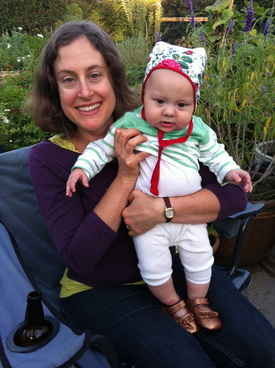 our daughter at one year old, with our midwife Dena, who caught her our daughter at one year old, with our midwife Dena, who caught her Dena’s Recommended Reading • Spiritual Midwifery by Ina May Gaskin • Birthing from Within by Pam England • Breastfeeding Made Simple by Kathleen Kendall-Tackett & Nancy Mohrbacher • The Attachment Parenting Book: A Commonsense Guide to Understanding and Nurturing Your Baby by Dr. Sears • You Are Your Child’s First Teacher by Rahima Baldwin Dancy Resources • www.denamoes.com • www.chicomidwife.com • www.midwivespass1306.com 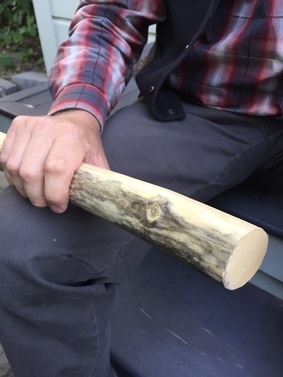 by Charles Zook, masterful Relationship Coach & co-leader of The Relationship Series Have you ever tried to resolve a difficult issue, and wondered why you seemed to get nowhere? Still irritated, still angry, still not feeling heard. Chances are you may have been co-processing, rather than using an effective means of communicating in conflict. Co-processing is a term I use to describe attempting to process more than one person's concerns at the same time. To illustrate, imagine you're watching a bunch of kids in your backyard and suddenly they all converge on the kitchen, all voicing their individual concerns simultaneously. Quickly realizing you certainly cannot address ALL of their various concerns at the same time, you say, "Whoa, whoa, hold on. One at a time!" You know that has to be the next step. Until the cacophony settles down and you are able to get them to voice their concerns one at a time, you know there is no way to proceed in any constructive or effective manner. Once you get them to voice their concerns one at a time, you know you will be able to listen and find a solution, one at a time, then the next, and the next, until each concern has been addressed. I am asserting that a similar sensible approach needs to be put into place when, for example, two people move from a calm discussion to a heated one. In such a situation, both parties are talking over each other, interrupting, or even if only one person is talking at a time the other person is not really listening. Rather than really trying to understand what the speaker is trying to communicate, the "listener" isn't listening, they are having a strategy discussion in their head about what they are going to say once the other person stops talking. There is no communication (no communing, no understanding), just two people doing their best to "win", to be right, to not be wrong, to be vindicated, to prove their point. This is what has been modeled for us with most of our families of origin, as well as reinforced by daily doses of media. Generally speaking, we just do not get educated about, or shown models for, effective communication. In effective communication it is critical to avoid co-processing. As soon as it is noticed that there is what I refer to as "tender or tense", much less if the situation turns into an argument, nothing good is going to happen unless the parties move to a more constructive approach. My model would recommend determining who is going to be the speaker and who will be the listener.This is similar to the Native American custom of using a talking stick, except I recommend that the listener employ reflective listening frequently throughout ("what I hear you saying is..."). This gives the listener something challenging to focus on AND confirms in the speaker's mind that the listener is in fact listening to and understanding what is being communicated. Once the speaker feels heard, they can switch roles. 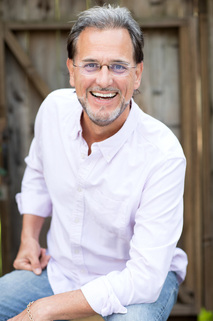 Slowing things down and being effective SEEMS like it will take longer, but in actuality, using an effective method works better and supports finding satisfying outcomes much more expediently than ineffectively talking at the same time. Give it a try! See what happens. Share your miraculous discoveries here. We love you, Jessica and my brilliant collaborator Charles (that's Charles --> and he's totally rad) Ten days ago I co-led a workshop called Dealing with Conflict. Participants raved about it. My co-leader, a wizard in the world of relationship coaching, and I had a blast. Then today was living proof of why people say, "What you want to learn, teach." Today the universe tested me: Do you practice what you preach? Are you living what you teach? I woke to make Earl Grey tea and found a mean spirited comment awaiting on a social media post I'd written about my next workshop, called Radical Love in Parenting. Profane name calling, insults, mean spirited aggression, it was all there. For a moment I thought of deleting it. We get to choose what we expose ourselves to, as humans, and I very proactively choose and create a loving world. Why would I allow such hatefulness on my page? Well, because hate can only project itself outwardly when it is felt inwardly, too. And it is my pledge of allegiance in this life, to love people -- even when they're mean -- not to add pain to pain by being mean back, or abandoning them.  Gut said: Keep it. This person is in pain. Deal with conflict. Be with conflict. See if you can help it dissipate in the presence of Love. And so I replied, to the best of my ability staying in a place of grace and strength, not embodying any of the qualities I don't want more of in the world: harsh criticism, judgment, violence. It may not have been a perfect response but I was proud of it. I was facing conflict in a way that felt self-honoring: inviting this person to consider a way of communicating that was respectful (differences being perfectly OK, but not meanness) and yet being "my own big sister" in clearly stating meanness wouldn't be allowed in this Leaning into Light community. I drove to a cafe to work for the day, feeling vividly content with who, and how, I was being. In the hours that followed, life showed me the glistening jewel within conflict. Why it can be so helpful to a warrior for Love, how it can stretch us to our next edge in living the life that we dream of: a richly fulfilled, courageous and dazzling-with-light, existence. If you missed our Dealing with Conflict workshop... shucks! We'll offer more. Popular stuff. But here are a few simple tips to rise above the war zone, rather than sinking into its muck. 1) Pause. The ever-undervalued pause. Let yourself process first. If you're emotionally triggered, you can take space. You don't need to respond right away. Take a break. An hour, 10 minutes, a day, what do you need to find more neutral ground before responding? Responding defensively and immediately can be harmful and further aggravating. 2) Don't take it personally. Remember Don Miguel Ruiz's book, The Four Agreements? Slam dunk on that one, #2, Don't take anything personally. Master that one and you're on your way, Baby. Big stuff. Remember that what someone else says, says far more about them than it does about you. If someone is harshly critical, consider the wounds inside of them and have compassion. Or dig it up. (And if someone is openly loving, hmmm, that may be someone you want to spend more time around, eh?) 3) Respond with strength and grace. Honor yourself. Be your own big sister or big brother. Stand for your own values and vision; you are their best friend. Clarify what you intended, if you were misunderstood. Take responsibility for your role, if it is clear what your role is. Were your actions or words in alignment with who and how you want to be in this world? If not, own it. Acknowledge it. Put yourself in their shoes. 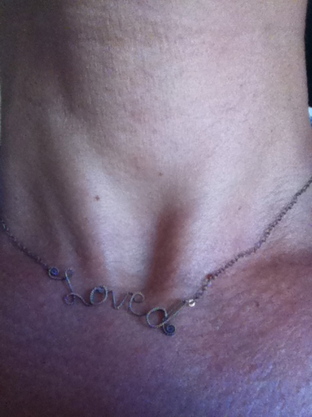 Using those guidelines to the best of my ability, I felt stretched in all the best ways, my emotional and spiritual capacity widened up to greet life more fully for the sake of my well being and everyone else's. And then a post arrived, from my friend and collaborator Olivia. In one of my favorite ways love gets expressed: the written word. From someone I met while we served as President and Vice President on a Board of Directors together. We loved working together so much that we now co-lead The Sisters Series for Leaning into Light's workshops. Since I am such a fan and practitioner of PDA (Public Displays of Affection) I will share it here, with an enormously grateful heart. She wrote:
Dear Jessica, I drove home the other day, from a really fun time with sister, aunt, friend. I was thinking about you. And how, from the moment I met you, you have influenced me. It wasn't always comfortable. Sometimes when someone's vocal way of being (you are very vocal), comes up against your edges, it can be painful, because she is actually shining so much light, that it challenges how you may speak, or think or act. It challenged me, it inspired me. There were some very deliberate ways that you communicated (pausing to take in a situation, taking the time to articulate what you ACTUALLY wanted.... not just saying things to be agreeable), pointing things out, taking the time to address them, challenging a group to be better!!!!!! Let's be better, let's live this life as brings the most peace to the most people on earth as possible. Any how. Your being, how you are, made me look at how I wanted to be. And explore those edges... inspired me to speak my truth, in a gentle, loving, respectful way... because then, more people win. I have also noticed that if I am feeling out of integrity in any particular area in my life -- maybe not a big deal thing, maybe a big deal thing -- that being with you can actually feel hard... and again, it's because I find you to consistently speak so much from a truthful heart, that, if I am not in a similar moment myself... it shines light on those areas of pain. But, here's the thing... YOU LOVE. And are so good at it. That... it just invites more love, and light to get its groove on, and show up. That's rad. The work you do with Leaning into Light, the workshops, the blog posts... they are you! And they are an invitation to anyone who wants to explore their edges, take time to reflect on what is important to them, and to be given really simple, strong support to make those small or big changes that actually shift things. It's awesome. Thanks for the work you do. Olivia Conflict gave me a big, bold invitation to become a stronger, more powerful and loving communicator. Conflict showed me what I've learned. Conflict showed me that I practice what I preach. Conflict need not be fed with our attention; it CAN dissipate with Love. And with that, I exhale one giant breath of thanks for being on this fine planet, in such fine company, for one more day. Good night, friends. I'll just go ahead and call it like I see it. Most people aren't great at dealing with conflict. Name calling, blame, high levels of defensiveness, resentment... It's not easy to remain respectful in the heat of an intense disagreement. We are all unskillful sometimes. Yet there are people I know who are very good at dealing with conflict, and I'd like to be more like them. They're not always gracious, they slip up sometimes, but they've courageously faced enough conflict that they've gotten really good at learning from it rather than becoming its victim.  For those who seek to be better communicators until the day we die as I do, who will never stop wanting to love more deeply and show up more powerfully for ourselves and others, I offer this interview. Here are two questions about dealing with conflict in relationship, and their answers from a man who's considered a wizard in the world of coaching, Master Relationship Coach Charles Zook. How does conflict affect relationships? Is it all bad, or is there a benefit to conflict sometimes? The impact of conflict depends largely on how we engage conflict. If done skillfully it can be a huge contribution; if done unskillfully it will likely result in a lot of toes being stepped on, so to speak. The culture and history most of us live in does not support education and modeling regarding skillful approaches to conflict (look around, lots of unskillfulness out there!). In every moment of our lives, and of our relationships, there is "Glass Half Full" (things that are fulfilling the way they are) and "Glass Half Empty" (things that are not fulfilling the way they are). Conflict generally falls under the Glass Half Empty umbrella. In our culture we tend to interact with Glass Half Empty with a "what's wrong" conversation. We are well trained and quite experienced with this type of conversation. We can tell you what's wrong with just about anything, especially our partners! 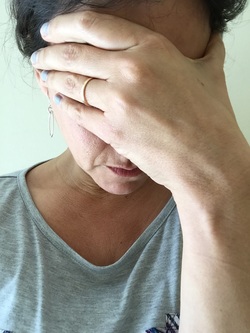 Developing a more constructive relationship with conflict starts with shifting from "what's wrong" to "what is wanting to happen." It is kind of like the shift from movie critic to movie director. A movie critic states, "I did not like this part", but does not have to address, "so what would you do differently to make it better?". To experience benefit from conflict we need to challenge ourselves to move from movie critic, "let me tell you what is wrong with this relationship," to a more challenging conversation, "what are we learning from this and how can we integrate this learning to make our relationship better in the future?" Learning how to do this is challenging but potentially very rewarding. Yet not learning how to do this is also challenging, and largely lacks any sense of progress, fulfillment, power, or self determination. How do we tell the difference between projections and other people's work?
Messy question reflecting a reality that is messy. From a Newtonian world view -- one that sees the future as determined by the past -- we should be able to parse these out. A certain percentage is projection, the rest other people's work, it varies by situation, like that. From a more Quantum Physics world view -- one that sees the future as TBD/to be determined, full of possibilities -- it is more holographic. Each component is there completely, and depending on what you are looking for, you will find it. In practical terms this may not be very helpful so far, but we need to establish that there is no measurable reality about this stuff, it is more a discussion about how can we approach this in ways that leads to fulfilling outcomes. The foundational assertion is that "If we tell enough truth, it will sort itself out, we will discover what is wanting to happen, we will reveal next step(s)." Without a specific example, I will address this conceptually. When dealing with yourself: Compassionately start with curiosity from the perspective of it is ALL me. What is my role in this? What is it I am wanting to learn from this life experience? What am I feeling? What do I need? If I could interact with this situation in a manner that reflects my values and vision, what would that look like? What to I want to create going forward? What could I do differently in the future that would contribute to different outcomes? Like that. Look for the gold of what there is to learn by approaching the situation as if there was something for you to learn and do differently in the future. When dealing with another, compassionately start with curiosity about the whole situation. What was their experience? What are they feeling? What do they need? How was the situation different than how they would like it to have been? What would they like to create going forward? What requests do they have? AND, are they interested and willing to hear your experience? If we are seeking to be right and avoid being wrong, then the interaction will center around that concern. If we can let go of the need to be right and avoid being wrong, we can listen and learn and problem solve and come up with creative ideas about how to do things differently in the future. - - - Thank you to the people who offered questions for this interview. And thank you for your generous sharing and wisdom, Coach Charles. To everyone reading: Was this helpful? What are YOUR questions about conflict? We're happy to keep offering insights as long as you share questions. You can post your questions anonymously or include your name; it's up to you. Those wanting a clear and practical tool that works, to deal with conflict, can join Charles and me (Jessica Rios, Founder, Leaning into Light) as we co-lead a 90-minute phone workshop on Sunday March 20th: Dealing with Conflict. Cost is $28pp, limited to the first 20 participants. Sign up here! |
AuthorJessica Rios, Founder of Leaning into Light, was born with a divine pen in her pelvis. Her heart writes for her; Love is her 'religion'. A lifelong letter writer and a thought leader in Love, her blog is devoted to her greatest passion: illuminating the beauty of the human spirit so we all move closer to remembering that Love is Who We Are. Categories
All
Archives
May 2024
|







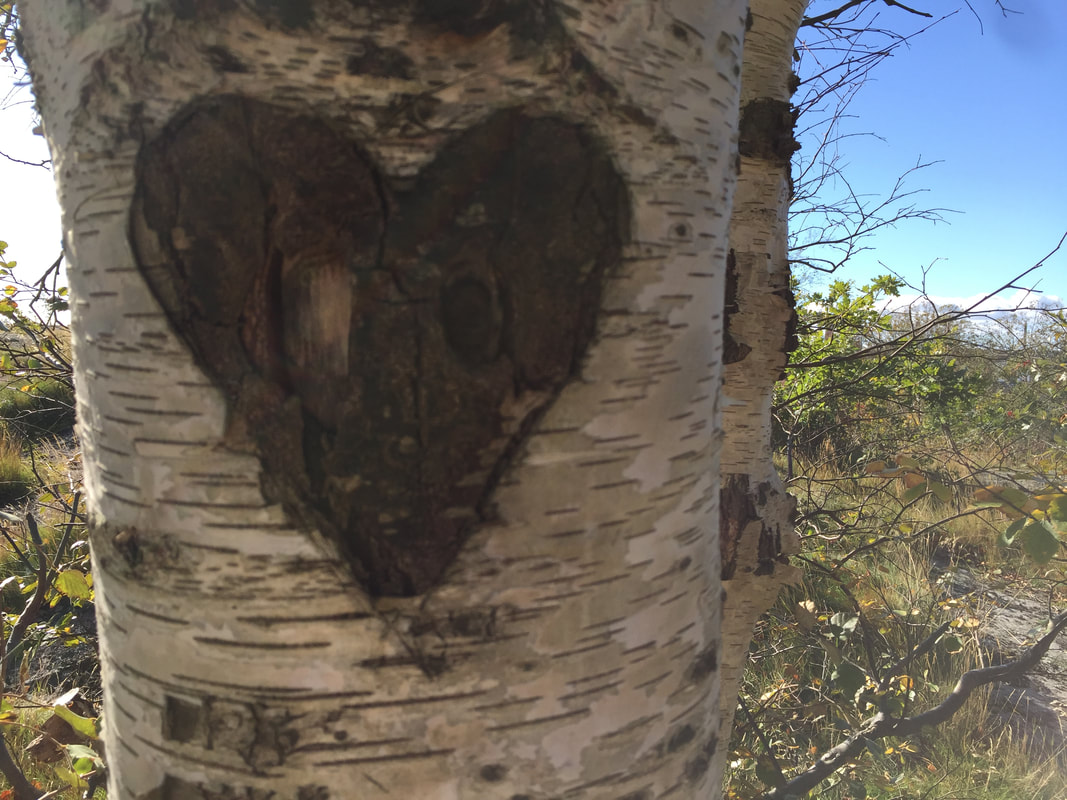
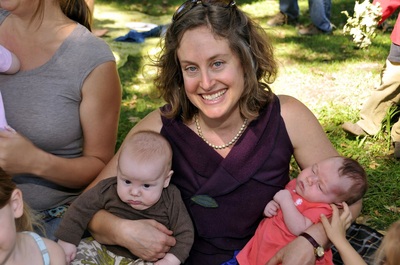
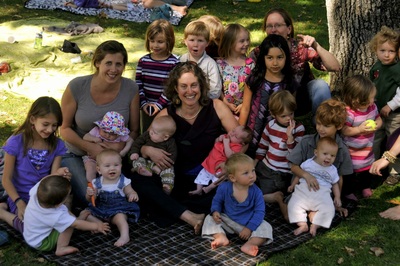
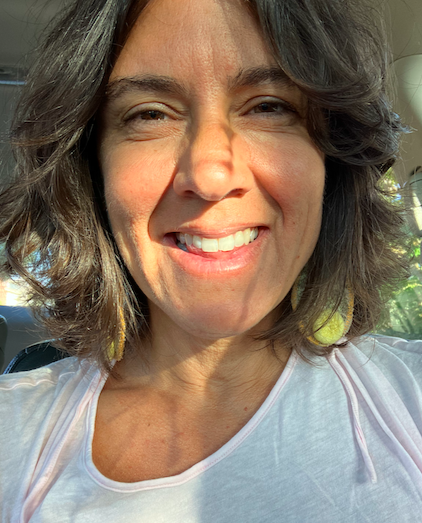

 RSS Feed
RSS Feed